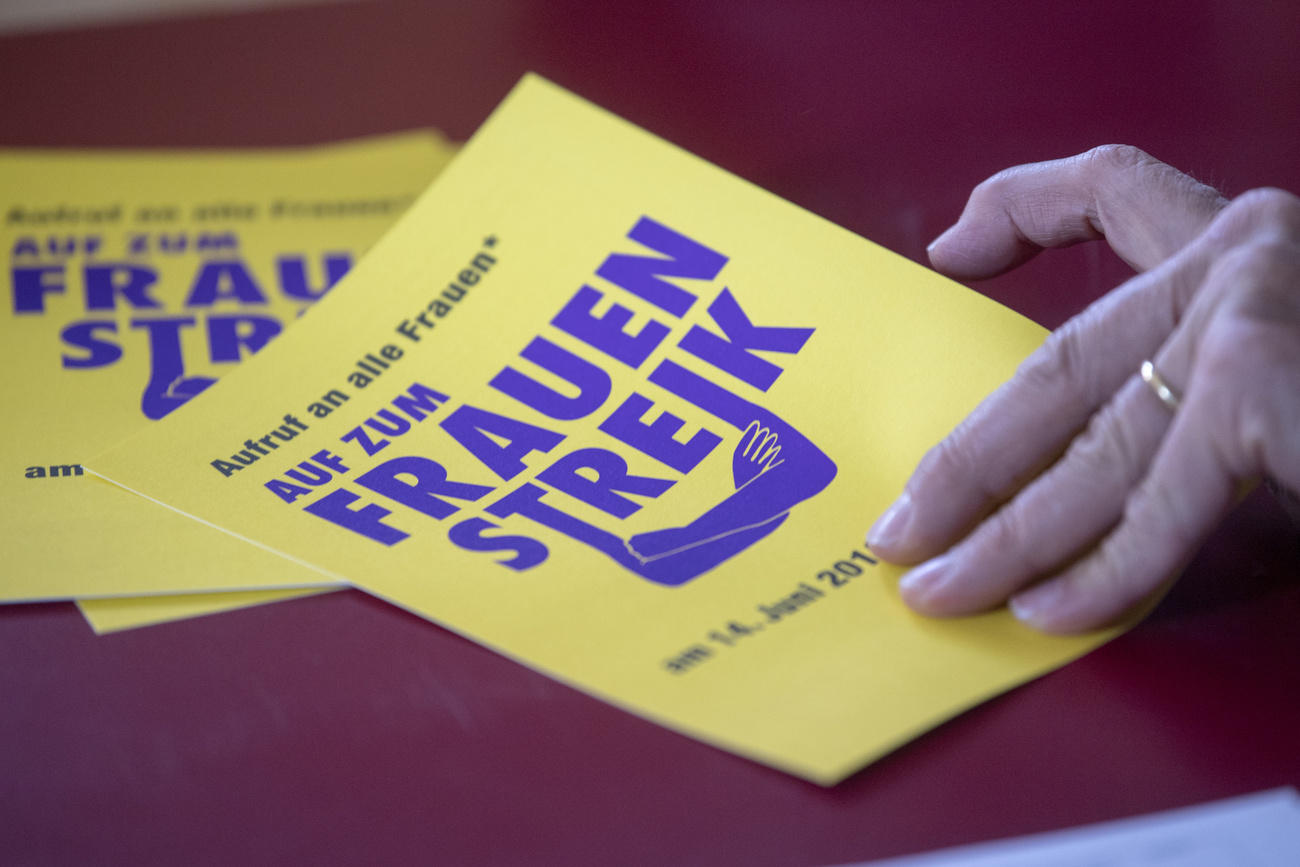
What role do migrant women play in Switzerland?

Migrant women are part of everyday Swiss life but where do they stand in society compared with migrant men or Swiss-born women and men? What opportunities do they have and what barriers do they face? A report by the Federal Commission on Migration (FCM) looks at these issues.
A large proportion of female migrants come from Europe (83%), according to “Migrant women in Switzerland: Situation, performance and potentialExternal link”, published on Wednesday.
The employment rate for foreign women (68.6%) is lower than that for foreign men (78%), Swiss women (83%) and Swiss men (85%). However, the fact that foreign women find jobs less often is not down to a lack of education. On average they are better educated than Swiss women, equally well-educated as foreign men, but less well-educated than Swiss men.
A relatively large number of foreign women work as auxiliary staff, with many in the service sector and in sales professions. At the same time foreign women are underrepresented in academic professions.
When it comes to executives, the proportion of foreign women holding a leading position is higher than that of working Swiss women in the same function.
Overqualified
Migrants of both genders, but especially women, are more likely to be affected by overqualification in Switzerland than locals, according to the report. Often, they cannot find a job that matches their qualifications and end up working at a less skilled level.
Although migrant women are better educated than Swiss women and about as well-educated as migrant men, they have to overcome higher hurdles when looking for a job. For example, they face discrimination not only because of their origin and religion but also because of their gender.
Nursing – in hospitals and long-term care – offers migrant women a chance to enter the labour market. Often they have other qualifications but can’t find work in their studied profession.
Pioneers
The report also shows that migrant women not only make an economic and social contribution to Switzerland, but that they have helped to shape Swiss society in an innovative way.
Migrant women, for example, fought for rights that had not yet been granted to women in universities and thus became pioneers in the academic careers of women in Switzerland.
They also strongly inspired the women’s suffrage movement by initiating and mobilising debates.
Furthermore, they made early demands concerning family and education policies and contributed to the establishment of non-family care.
Strike
The FCM report comes two days before women from across Swiss society take to the streets for a nationwide strike aimed at highlighting the country’s poor record on defending the rights of women and families.
Despite its high quality of life, Switzerland lags other developed economies in female pay and workplace gender equality.
Using the slogan “Pay, time, respect!”, Friday’s event echoes a strike held in 1991, five years before the Gender Equality Act came into force.
That law banned workplace discrimination and sexual harassment and protected women from bias or dismissal over pregnancy, marital status or gender. But more than 20 years later, women argue they face earning less than men, routine questioning of their competence, and condescension and paternalism on the job.

More
Organisers outline plans for nationwide women’s strike

In compliance with the JTI standards
More: SWI swissinfo.ch certified by the Journalism Trust Initiative






























You can find an overview of ongoing debates with our journalists here . Please join us!
If you want to start a conversation about a topic raised in this article or want to report factual errors, email us at english@swissinfo.ch.